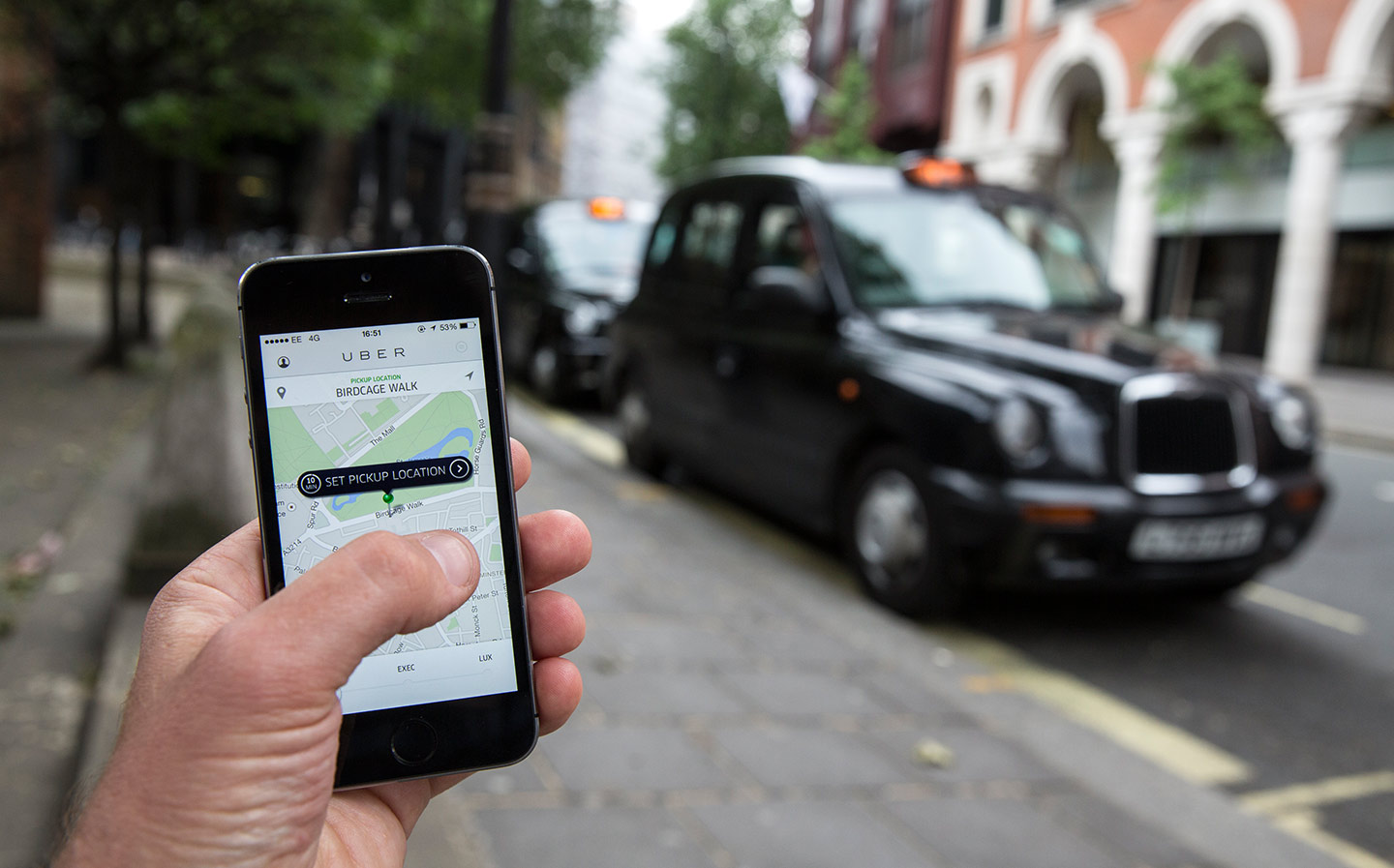Black cab drivers stall Uber's London licence renewal
Judge impartiality questioned during appeal
UBER’S future in London is again in doubt after black cab drivers were granted a judicial review of the decision to award a new licence to the controversial taxi firm.
A High Court judge has allowed the cabbies to take action against Westminster magistrates’ court and the alleged “bias” of Emma Arbuthnot, the senior district judge and chief magistrate of England who decided the Uber case.
Granting the application, Mr Justice Walker also said Uber had “gravely misled the regulator and the court”.
In August, six weeks after Arbuthnot ruled in favour of Uber, it was revealed that her husband James, a former Tory MP, works for a strategy firm which advised one of Uber’s main investors.
She said she had been unaware of the connection but withdrew from a future Uber case she was due to hear about Brighton’s refusal to renew the company’s licence.
A judicial spokesman said: “It is essential that judges not only are, but are seen to be, absolutely impartial.”
Submissions by Robert Griffiths QC, acting for the United Cabbies Group, said Arbuthnot had failed to explain why, if she was not qualified to hear the Brighton case, she had been qualified to hear the London one.
In his ruling, Walker said the cab drivers’ arguments “merit consideration at a hearing. Uber had gravely misled the regulator and the court. The failure to make an express finding that it had indeed turned into an entity that was ‘fit and proper’ may, at least arguably, reflect an impermissible approach.”
Transport for London, the regulator, refused to renew Uber’s licence in September last year, saying its behaviour fell below the legal test of being “fit and proper”. Uber appealed. In her decision, Arbuthnot said TfL had been right to refuse a licence at the time, since Uber had deceived both it and the High Court in a previous action.
However, she said Uber had since improved and gave it a temporary, 15-month licence to allow it to prove that it deserved a longer licence. Calling her reasoning “unlawful” and “illogical”, Griffiths said Arbuthnot was not allowed to reprieve Uber “in anticipation of it becoming fit and proper” but was obliged to decide whether it was actually fit and proper at the time of the case.
Uber, which can operate while the case proceeds, declined to comment.
Andrew Gilligan
This article first appeared in The Sunday Times





